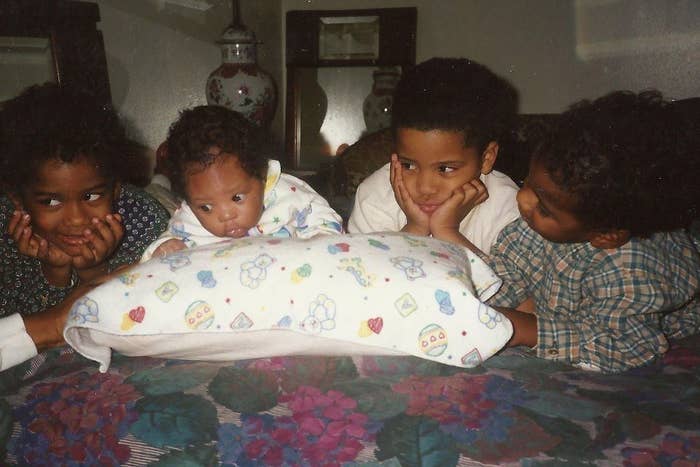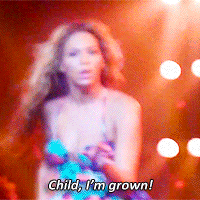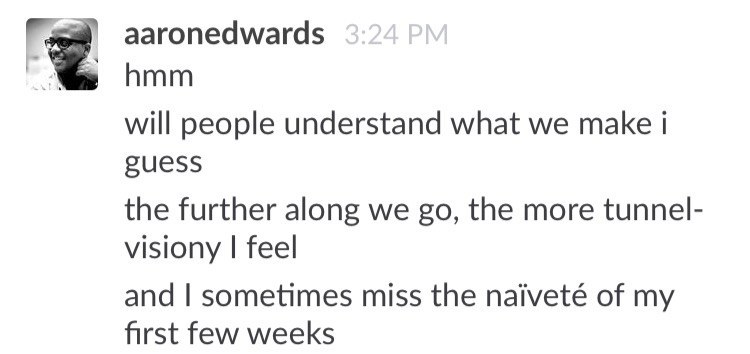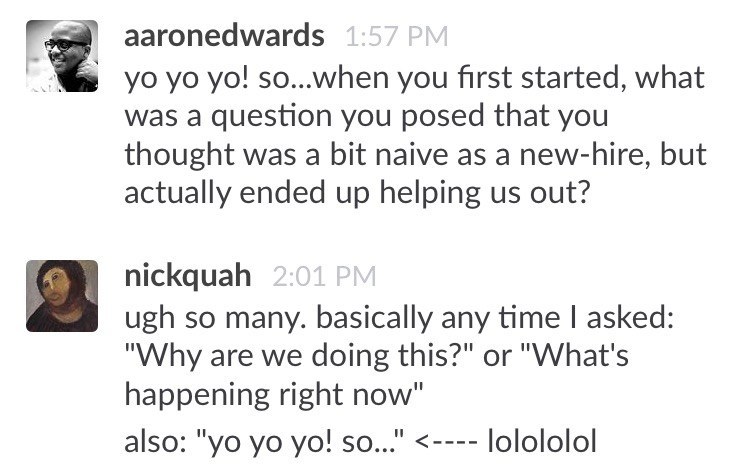
Growing up, whenever my younger cousins and I spent the night at our grandparents' house, we stayed in a room on the second floor. It was our childhood fortress. We dressed up like Final Fantasy video game characters, made caves from sheets and flimsy boxes, and built towers by stacking dusty VHS tapes in awkward arrangements (Lego creator sets were too expensive; colorful toy blocks were passé).
Our castle of creativity was modest: big enough to fit a queen-sized bed and to accommodate four 6- to 9-year-old boys chasing each other for a few paces in each direction. But as I got older, my cousins started to notice me growing bored.
"I wonder what the inside of these tapes looks like?" one of my cousins asked me one evening, hoisting a VHS above his head. My reply had no zest.
"Those tapes are dumb."
And just like that, the ring-leading boy who just months before draped fitted sheets over his OshKosh B'gosh T-shirts into variations of a toga had lost the will to question—the will to play.
I revisit the concept of play and experimentation in almost every aspect of my life, including my job. And I often wonder when (and why) I dismiss or hide the impetus to frolic, interrogate, and be a bit naive. One afternoon, my coworker Millie sent me a message that made me think about this, yet again.

There was a moment about three weeks into my time working on the BuzzFeed News app when I started to feel the sensation of familiarity. I met most of the people in our New York editorial office, had a solid understanding of the roadmap for the app's development, and was acquainted with the development teams.
But I also wasn't asking the same simple questions that challenged the status quo of our production process. I got too comfortable and assumed too much of my own knowledge about where the team was headed. I wasn't thinking like a kid.



When I got to that place, I had to push myself to regain some of the inherent curiosity that came from being a new-hire. Our team rallied around the notion that no question was too basic, no idea too small. I find that approach so important in an age where products, which require constant fine-tuning and fresh eyes, are at the forefront of innovation in journalism.
Here are some reasons why.
Your “naive” question can expose holes in development.
#teamnewsapp has adopted a fairly straightforward ethos: While developing process around our product, we will strive to never fall into the pit of Doing Things Just Because We Have Done Them That Way Before. I asked my colleague Nick about this. (We all ask each other a lot of ~questions~ in Slack).

For instance, Nick and I had a conversation around push alerts that contributed to a broader team discussion about why we value context so highly in the text of our notifications. And it all started with the simple question: "Why are we doing it this way?" Our philosophy is malleable and evolves as we learn more about our audience.
Asking keeps everyone accountable.
To organize feedback between the editorial and development teams, we created an internal Google form linked to a running spreadsheet that editors could enter bugs and hiccups with our CMS or product. The rules are simple: editors notice buggy or weird behavior in the app amid production, flag it in the Google Form, devs check it out later, prioritize the concerns and address them.
A challenge here: After months of adding feedback, smaller things can start to seem insignificant or unnecessary to flag. A sense of, "I'm sure they're already working on this..." can set it.
A solution? Default to oversharing and overlogging even the smallest of reactions and thoughts—edit later.
Your job will be exponentially more fun if you don’t take yourself too seriously.
Deep down, aren't a lot of us trying to save face and look 💆 all-knowing 💆 when we don't ask a lot of questions in meetings? I KNOW I AM AND I'M NOT ASHAMED TO ADMIT IT. Sorry for yelling. But real talk, it's a waste of time because in the end you're serving yourself and others by being inquisitive and working through your ideas.
Our team's encouragement for anyone working on a project of any size or caliber is to never fear the drawing board. It might be a bit dusty from the last time you were there, but amid those specs are hints of the early ideas that got you moving in the first place.
And yes, I know what the inside of a VHS tape looks like now. But I always wish I had seized the opportunity to pull it apart when my cousin first asked, all those years ago.
Update: 10-year-olds visited BuzzFeed and gave us feedback on our app. What one of them wrote is simple, totally valid, and warmed my soul.
10-year-olds looked at #teamnewsapp's beta today and gave us feedback. ❤️: "The breaking news is very breaking."
